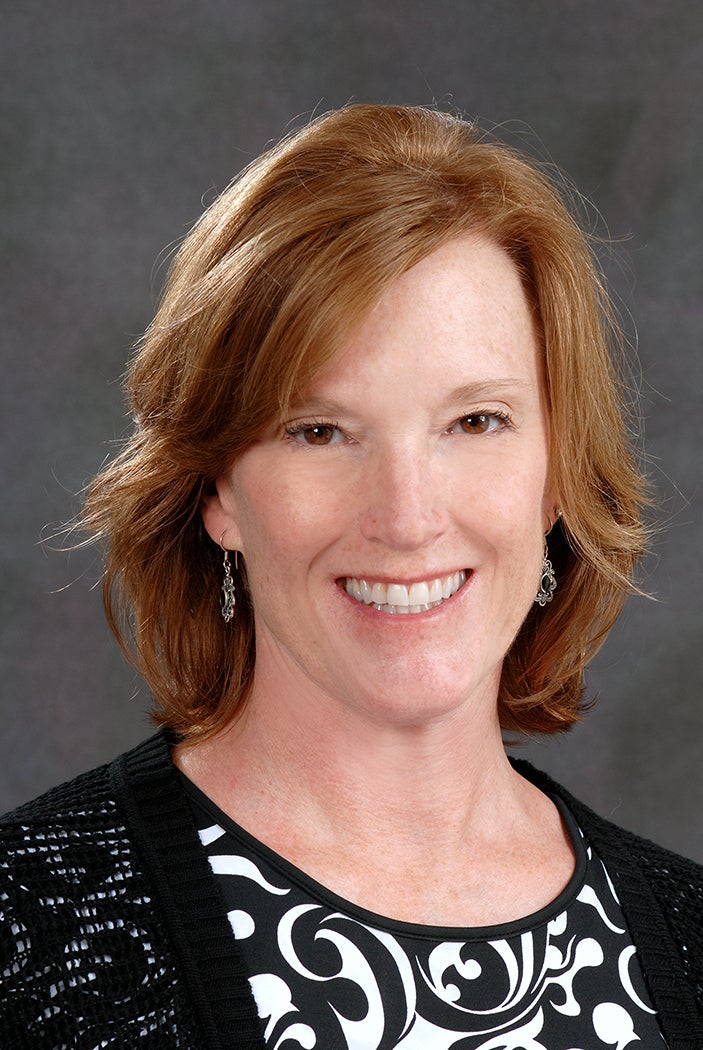‘Powerhouse’ School Nurse Certificate program: Q&A with director Robin Adair Shannon
body

The UIC College of Nursing School Nurse Certificate program is one of only four in the state of Illinois to offer a credential in the specialty practice of school nursing.
A recent story that aired on Chicago’s NPR affiliate, WBEZ, called it a “powerhouse program,” and its director, Robin Adair Shannon, DNP ‘17, MS ’09, RN, NCSN, PHNA-BC, a “school nursing guru.”
We spoke to Shannon, who co-edited the 900-page, “School Nursing: A Comprehensive Text, 3rd edition,” which is the specialty textbook of the National Association of School Nurses and is used across the country by practicing school nurses.
She spoke about the program’s increasing demand, especially in light of a commitment by Chicago Public Schools to put a nurse in every school, every day, within five years.
What drew you to school nursing?
Originally, I was an adult critical care nurse and loved it. Then when I had little kids, it was difficult to work holidays, weekends and nights. I was at a PTA meeting at my kids’ grade school and the superintendent announced that Nurse Molly of lo these 25 years was retiring. I walked up to him after and said I’d like to hear more about it. He said, “How about I hire you?”
I thought, “Ok, I’m a critical care nurse, this will be easy.” But during my first week, I recognized right away this is a specialty area, and I was outside my lane. It’s healthcare delivery in a non-healthcare setting. There’s no equipment or supplies. There are all these rules and regulations for education and public health and immunizations. So, I got certified at UIC in 2000 and I’ve loved it ever since.
What do you love most about it?
If you take any given health condition or risk, kids are most affected by it—not at the doctor’s office or hospital— but at home and at school. It’s a fantastic opportunity because, as a school nurse, you are the healthcare provider who interacts with these kids day in and day out, year after year. You really have an opportunity to improve health outcomes, which in turn, improves learning outcomes. It’s a long-term, continuity-of-care type of relationship and that’s how you affect health.
People come [to the profession] for the schedule, but they stay for the work. It’s really highly-rated in terms of job satisfaction among nursing specialties.
Tell me about the UIC School Nurse Certificate program.
In Illinois, to call yourself a Certified School Nurse, you have to get a Professional Educator License in school nursing through the Illinois State Board of Education. The requirements parallel the certificate required for teachers and other school support personnel. In our two-to-three semester (10-credit) program, we teach courses on educational perspectives in school nursing and school nursing theories and trends. Once students pass the school nurse content exam through the state board, they complete a 300-hour, supervised internship.
Our faculty are nationally-recognized leaders. There are seven doctorally-prepared Certified School Nurses on faculty. Cathy Yonkaitis, DNP ’17, RN, PEL-CSN, PHNA-BC, who was director for 11 years before I was appointed in the fall, co-edited the 3rd edition of the school nursing textbook with me.
We’re also proud to be 100% online. We have students from all over the state.
Do all school nurses have the Certified School Nurse credential?
No, you can be a nurse in a school without being a Certified School Nurse.
Why would someone want to be certified?
The main difference is the scope of the job. If you don’t have a certification as a school nurse, you’re not qualified to participate in the special education process. Under federal law, kids undergoing evaluation for special education are required to have a comprehensive evaluation by qualified professionals, including health. In Illinois, that health professional has to be a Certified School Nurse.
School nursing is public health nursing. Our program prepares school nurses to be health champions, not only for students with special healthcare needs, but also for students at risk, families and school staff.
The pay is also better. With a professional educator license, you get paid on the teacher’s salary and get recognized professionally as certified staff.
How many students are in your program?
Currently, we have about 60 students in the program. We admit 32 students every fall and spring semester. That’s our capacity, but we’re hoping to grow, because the demand is increasing across the state.
Why is demand growing?
School districts are being held accountable for complying with the law of having a Certified School Nurse in every district to serve the needs of the student population. And increasingly, districts are recognizing that school nurses improve student health and attendance outcomes for better learning.
Also, under a new law signed by Gov. J.B. Pritzker in August, nurses are no longer required to take the ACT or SAT to get into a teacher certification program. That requirement was a natural filter for nurses who had been practicing but had never taken the ACT or SAT. Now that barrier’s been removed.
Lastly, we’re expecting to see increased demand from the Chicago Public School district, which has committed to hiring hundreds more nurses over five years.
Are there other benefits to certification?
You’re taking care of individual kids with special healthcare needs, taking care of episodic or emergency illnesses or injuries, and doing public health prevention and education. It prepares you to advocate for your students and the school community. It’s really gratifying work.